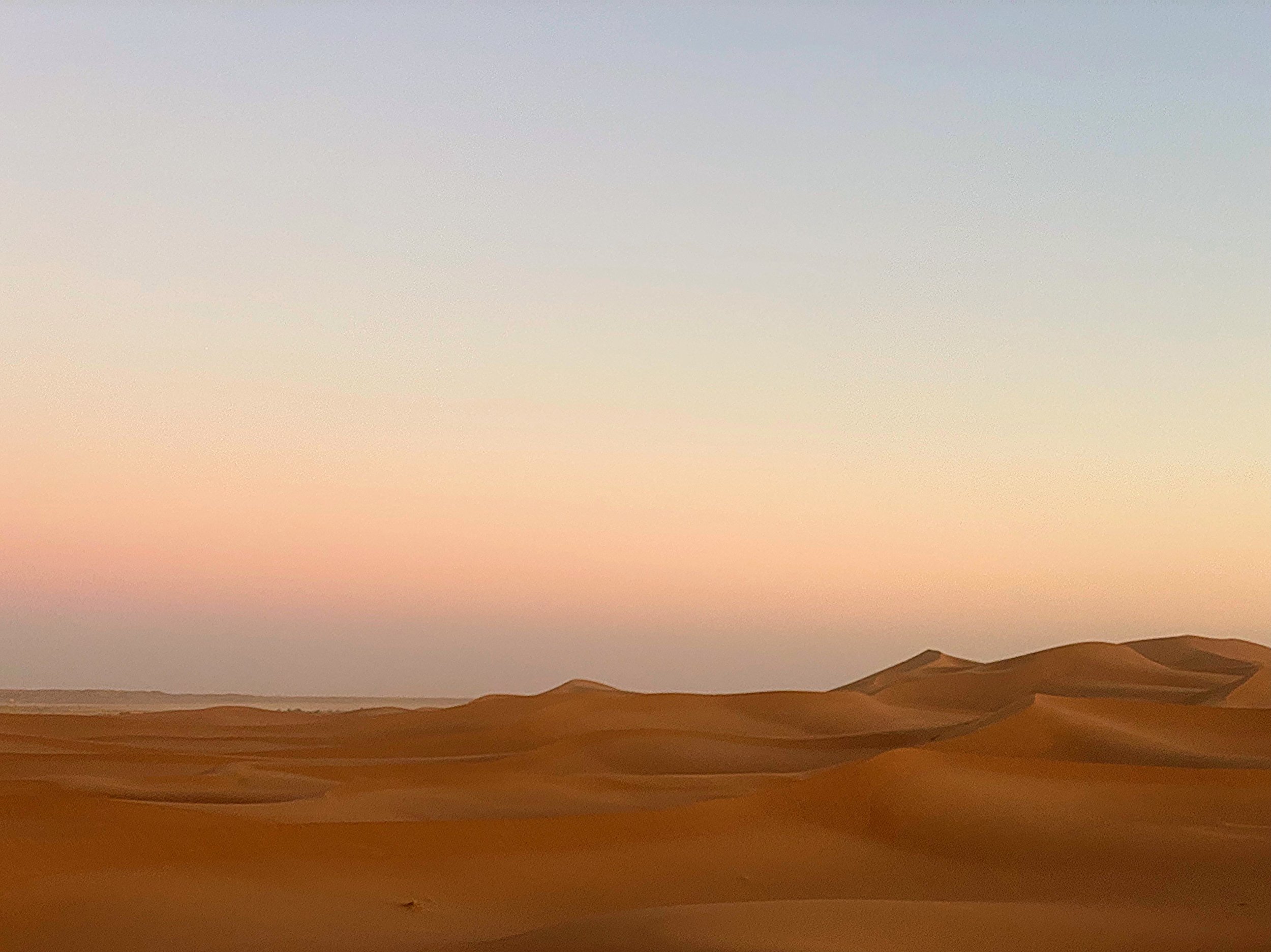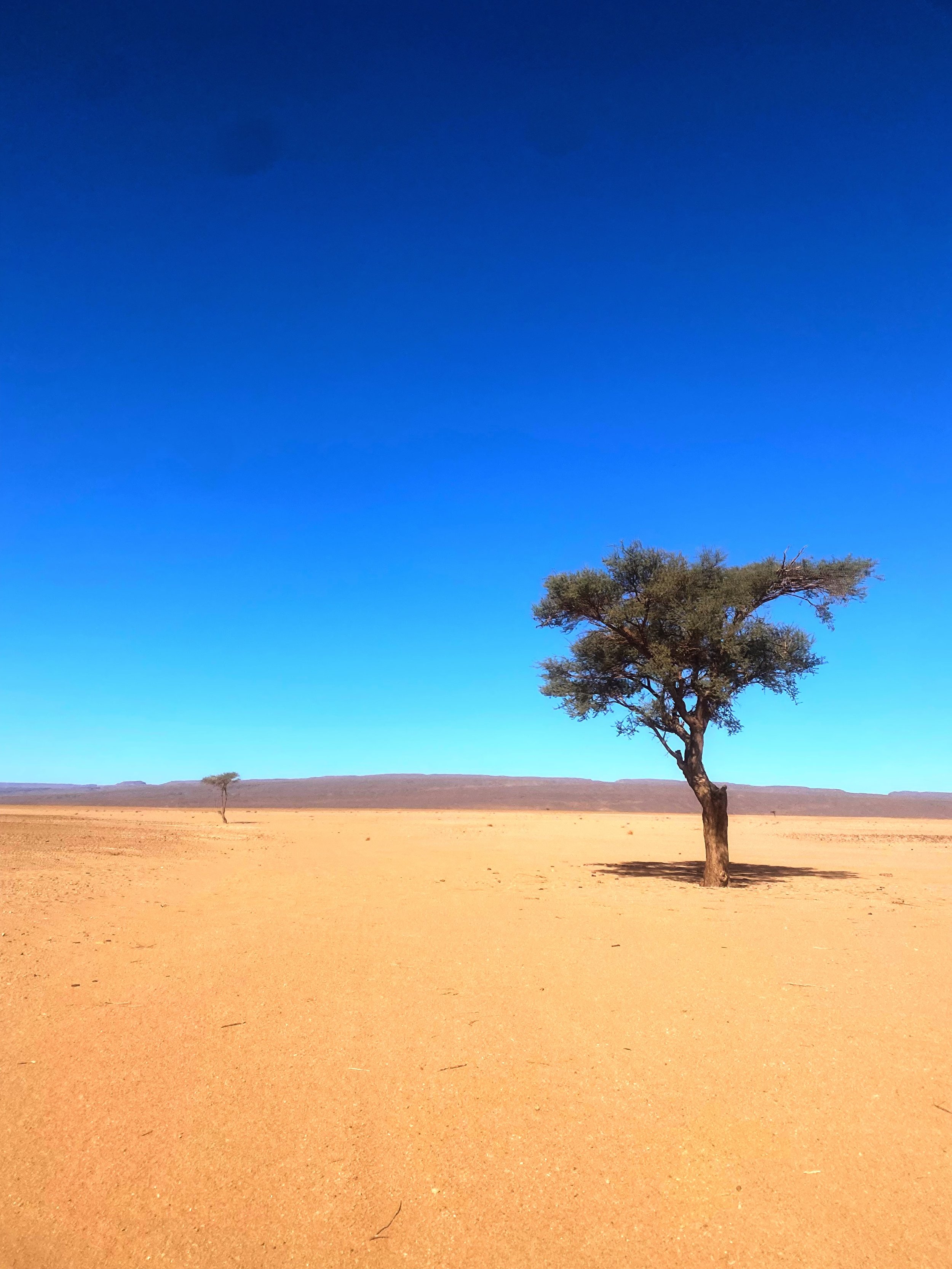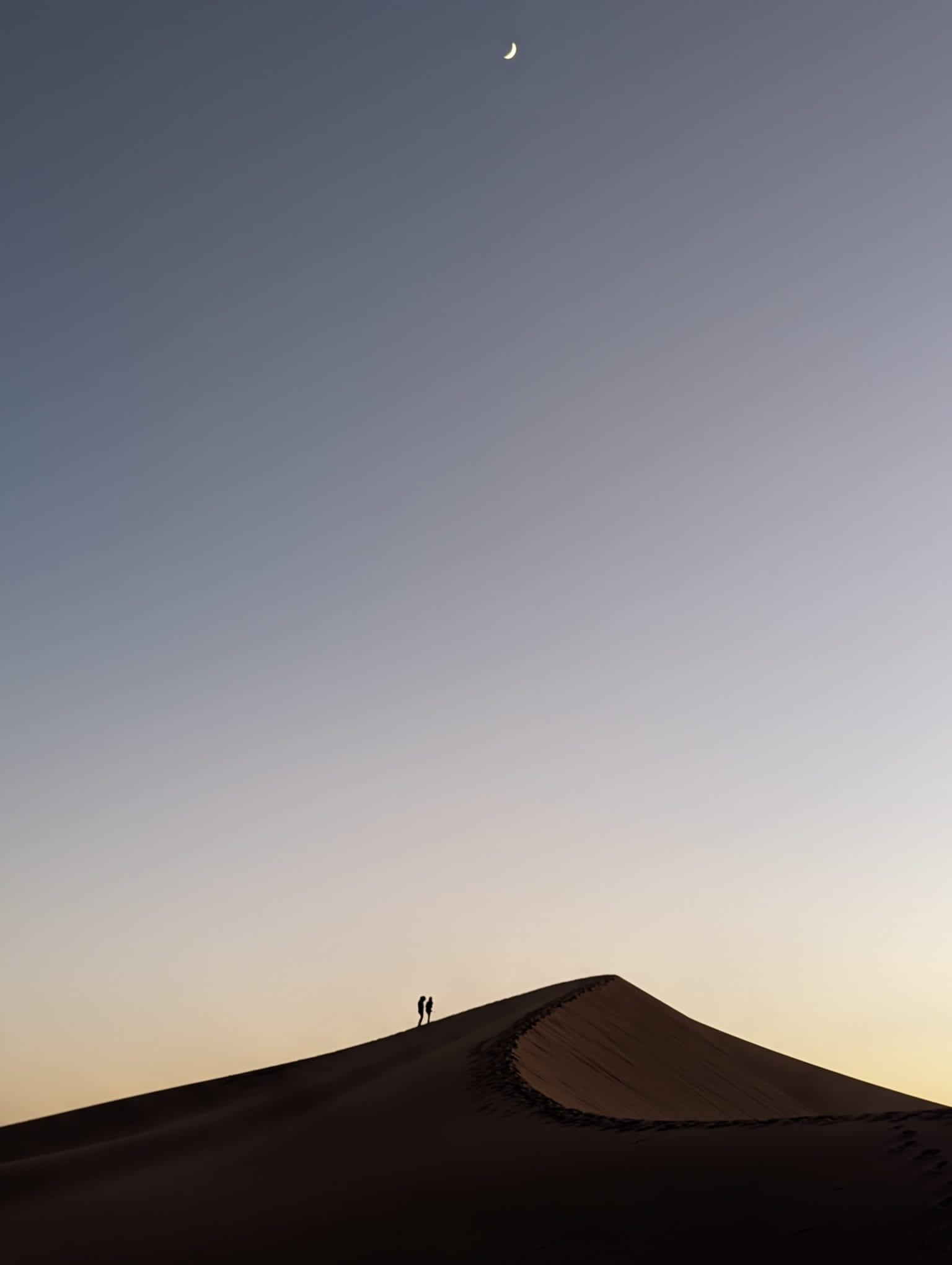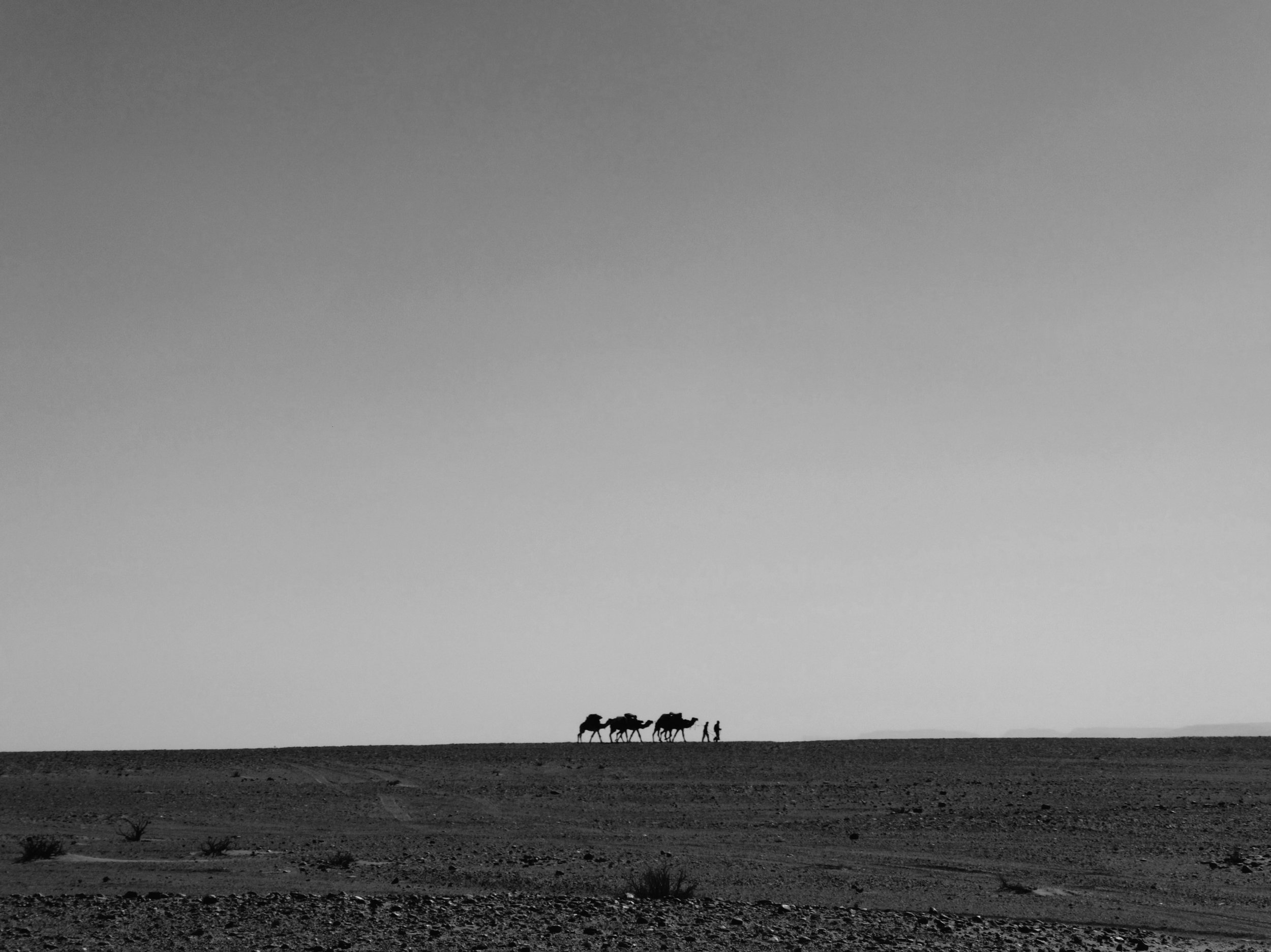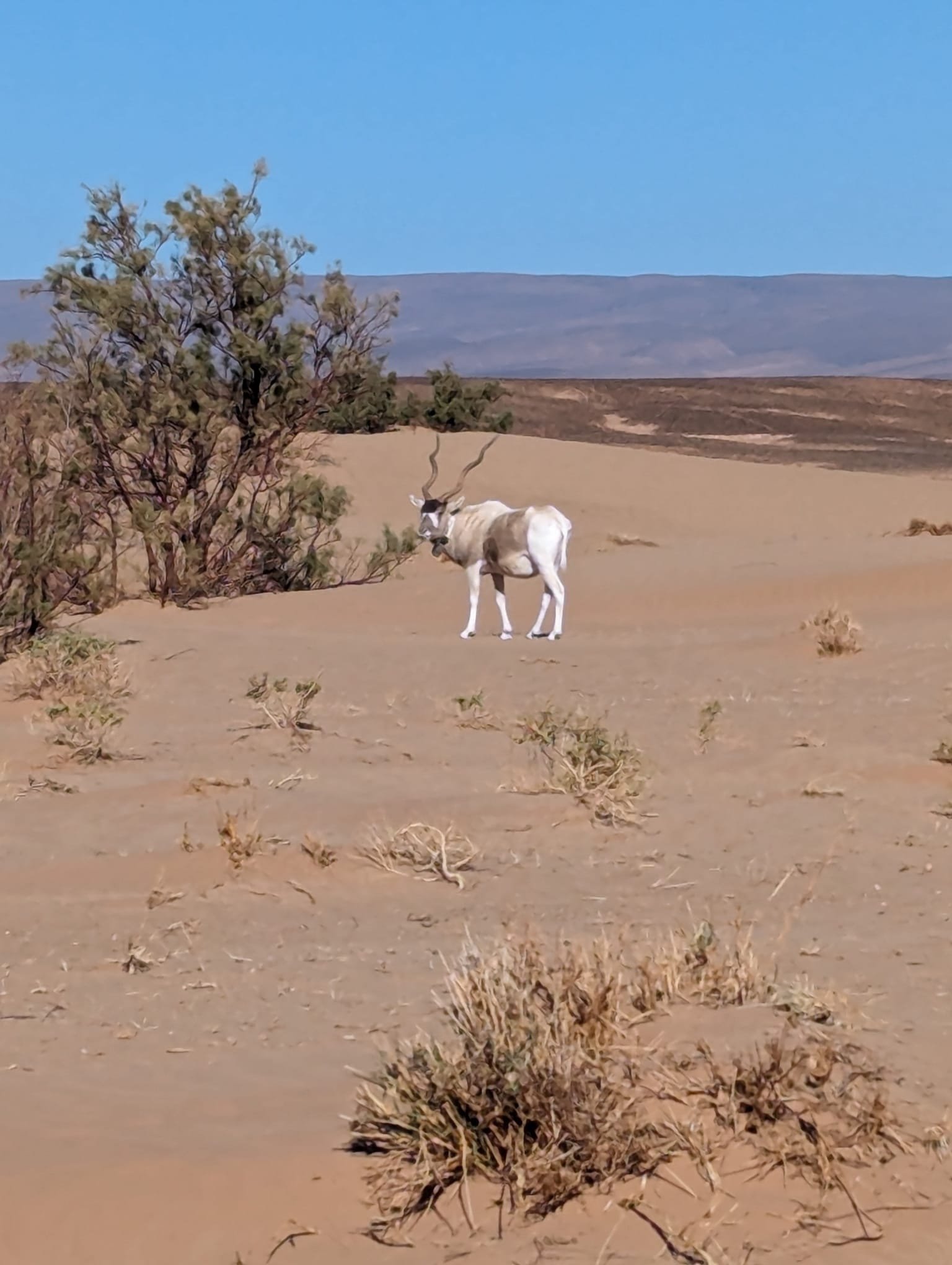Attention desert - nomadic Saharan life
Said's face is lit by the fire that we're sat around, his bright eyes and quiet features framed by his Tuareg blue turban. We've come to the 'big dunes' of the Sahara desert for a couple of days, the dunes of his nomadic childhood and early teenage years.
The desert:
-side-sliding snakes with their seasonal David Attenborough filming crew in tow.
-primary-colour yellow blocks in children's books with facts and figures more astronomical than my little brain could, and still can, contemplate.
- shimmering oases not quite close enough to touch for a hapless protagonist on the big screen before the shot fades to black.
The big dunes
The chance to visit was enticing because the desert was, to me, a remote vastness of overwhelming and threatening superlatives. What I hadn't anticipated was how much humanity there was to be found in the sand.
Just before we tipped off of the tarmac road between two rocky hills and into the sand of the desert, three bright yellow signs flash past the window.
"Attention desert. Allow us to live by our culture. Respect local customs."
"Attention desert. Be cautious. Preserve the nature and cultural environment."
"Attention desert. Water is a treasure here. Use it with moderation and respect."
On our drive to the desert
That the desert had to be pointed out to drivers like a 12th century church or low bridge with a polite 'attention' made me laugh. It was, however, the second half of all these statements that stood out. Not the fear of poisonous snakes, getting lost, or a lack of water, but this as a lived environment.
So here we are, around the fire, asking Said about how it was living with other tribes in these 'big dunes'.
"With binoculars you can see someone miles away - we use signs to communicate with other people. Like this," he draws his index and middle fingers down the centre of his chin "means a woman. Sometimes we have to find people, lost tourists who don't know the desert. We know how to find their tracks and see the dust from their cars."
Two workawayers in the desert moonlight, photo by Alex
The desert is vast, but you might never be as alone as you think. We met a couple of guys tracking their lost camel, saw the silhouettes and cigarette smoke of other dune-sunrise watchers, and passed through a small settlement round a natural spring.
"They [the locals] take the dates from the trees, but they will always leave some," Said tells us, "so that if you come through you can take some if you need." A wild donkey ambles through, its ears flicking between our conversation, small birds in the palm trees, and the frogs submerging their bodies in the shallow stream.
"What kind of thing would you eat Said?" asks Anaelle, another workaway-er later in the day.
"We would hunt, for deer for example. With my uncles I could track and set snares and traps. The meat we would dry in the sun with lots of salt, pepper and hot pepper. When we wanted to eat it, we would soak it in water to get rid of the salt and then cook them."
"And vegetables?"
"Lots of lentils," I look at Linde who smiles, it's still a favourite meal of his, "or we would use a 'nomadic fridge' - a jar with a piece of damp cloth wrapped around it to keep vegetables cool."
A camel train
We'd seen one of the 'local' wells on our three hour drive out to the dunes. Its upkeep now funded by the EU, Mubarak, our driver, called it one of the 'roundabouts' of the desert, a pit-stop on the way to Timbuktu.
Each part of the family had a different responsibility when on the move. Staying somewhere for between 15 days and 2 months allowed time to take the camels and trade in the local towns and villages to get food and other supplies.
This was not always easy - areas are and have been fought over between tribes as well as with the Moroccan and Mauritanian governments, especially in the Western Sahara. A quick google tells of an intense and bloody history soaked into the sand.
White antelope, photo by Alex
The next day we spot a white antelope, an addax, slowly grazing in the shade of a rocky outcrop. Its long, twisted horns reach up to the sky.
Around its neck is a heavy collar, weighed down by a tracker. Now endangered, these antelope are protected in the region.
"Where there is one there are always more," says Said as he reaches for the binoculars on the front seat. He disappears up into the rocky hills above us to track the rest of the herd.
Linde watches him and smiles, "He'll come every summer out here with the motorbike and his tent, to re-learn what he already knows so he doesn't forget."
She pauses for a second.
"He always looks more awake in the desert, more alive."
A minute later and he's above us, crouched in the sun, binoculars pointing out into the sand between him and the hills of Algeria looking for the deer that he learnt to track as a child.
The desert may be an expanse of sandy superlatives, but within it are childhood stories, family meals, and a sense of home.
"Attention desert. Be cautious. Preserve the nature and cultural environment."
Said
Om Sahara Tours - https://omsahara.wixsite.com/omsaharatours
Bani Hayoune Garden - https://www.banihayounegarden.com/
Volunteer - Workaway, Worldpackers, Instagram and Facebook

